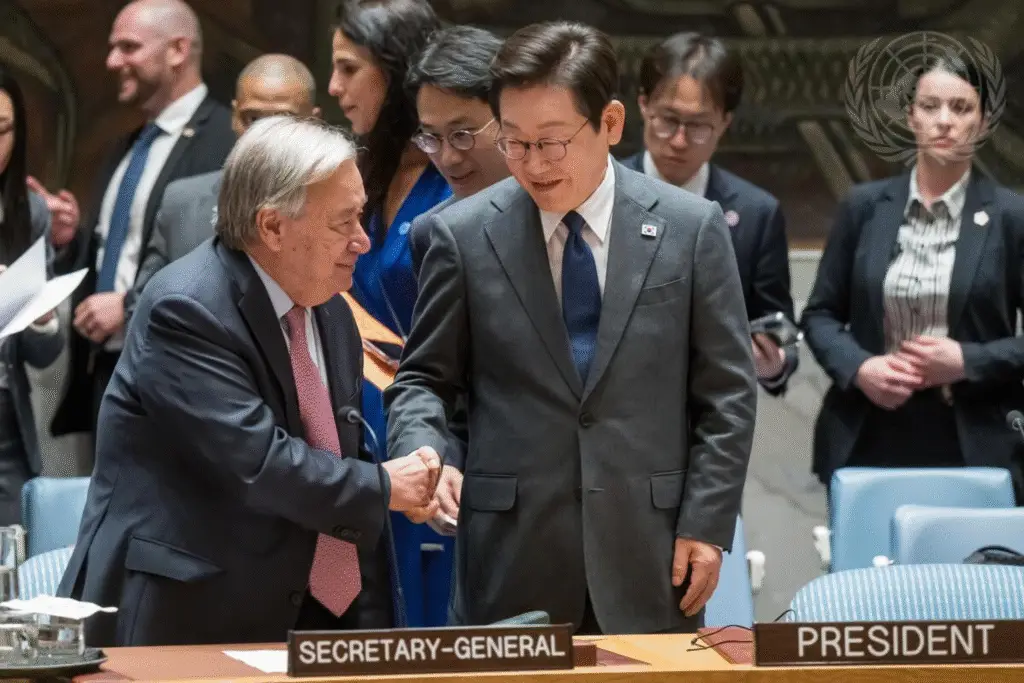Philippines Calls for Strong AI Military Oversight
The Philippines has urged the United Nations Security Council to take decisive leadership in regulating artificial intelligence for military applications. Officials warned that rapid development of autonomous weapons could destabilize global security if left unchecked.
Foreign Affairs Secretary Ma. Theresa Lazaro emphasized that AI is now more than a technological innovation; it is a pressing security concern. She stressed the urgent need for governance that matches the pace of AI advancements in modern warfare.

AI Militarization Risks Escalating Global Tensions
Lazaro cautioned that militarizing AI could lower the threshold for conflict and escalate geopolitical tensions. Autonomous capabilities, if widely adopted without oversight, may provoke unintended confrontations.
She argued that global powers must work together to prevent AI from becoming a trigger for new arms races. Collaborative regulation could help avoid accidental escalations and ensure technology does not destabilize international peace.
UN Resolution Sparks Global AI Governance Momentum
The Philippines played a key role in the 2024 UN resolution addressing AI in the military domain. This resolution highlighted the dangers of unchecked AI proliferation, accidental escalations, and its potential misuse by non-state actors.
By supporting this initiative, the Philippines positioned itself as an advocate for responsible innovation. It has continuously emphasized that governance frameworks must evolve alongside technological progress to maintain global stability.
Recommended Article: UN Takes Historic Step Toward Global AI Governance Framework
Human Oversight Must Remain Central in AI Warfare
Lazaro insisted that autonomous weapons must never act beyond human authority. She reiterated that life-and-death decisions should not be left solely to machines under any circumstances.
This principle was reinforced during the Manila Meeting on Autonomous Weapons Systems in 2023. The Philippines highlighted that human control is essential for ethical and accountable military decision-making.
Legal and Ethical Principles Guide Policy Proposals
The Philippine delegation urged that future AI defense norms align with humanitarian and human rights laws. Lazaro stated that peacekeeping operations integrating AI must have robust oversight to ensure their protective role.
She emphasized that legal frameworks provide a moral foundation for responsible innovation. These principles are essential to prevent AI tools from being weaponized in ways that harm civilians or destabilize nations.
AI Misuse Threatens Democracies and Global Stability
Lazaro also warned that AI misuse, including deepfake propaganda and algorithmic disinformation, poses severe risks to democratic institutions. Such technologies can intensify conflicts, destabilize societies, and undermine public trust.
The Philippines urged states to adopt transparency measures to reduce miscalculation risks. She also called on private companies to follow responsible guidelines aligned with UN principles on human dignity.
Harnessing AI Responsibly for Peace and Security
While calling for safeguards, Lazaro acknowledged that AI can support UN missions when applied responsibly. It could strengthen threat assessments, enhance sanctions monitoring, and bolster counterterrorism operations.
However, she emphasized the importance of strict limitations to ensure these tools remain beneficial. The Philippines envisions a future where AI contributes to peace and security without compromising ethical standards or human oversight.















